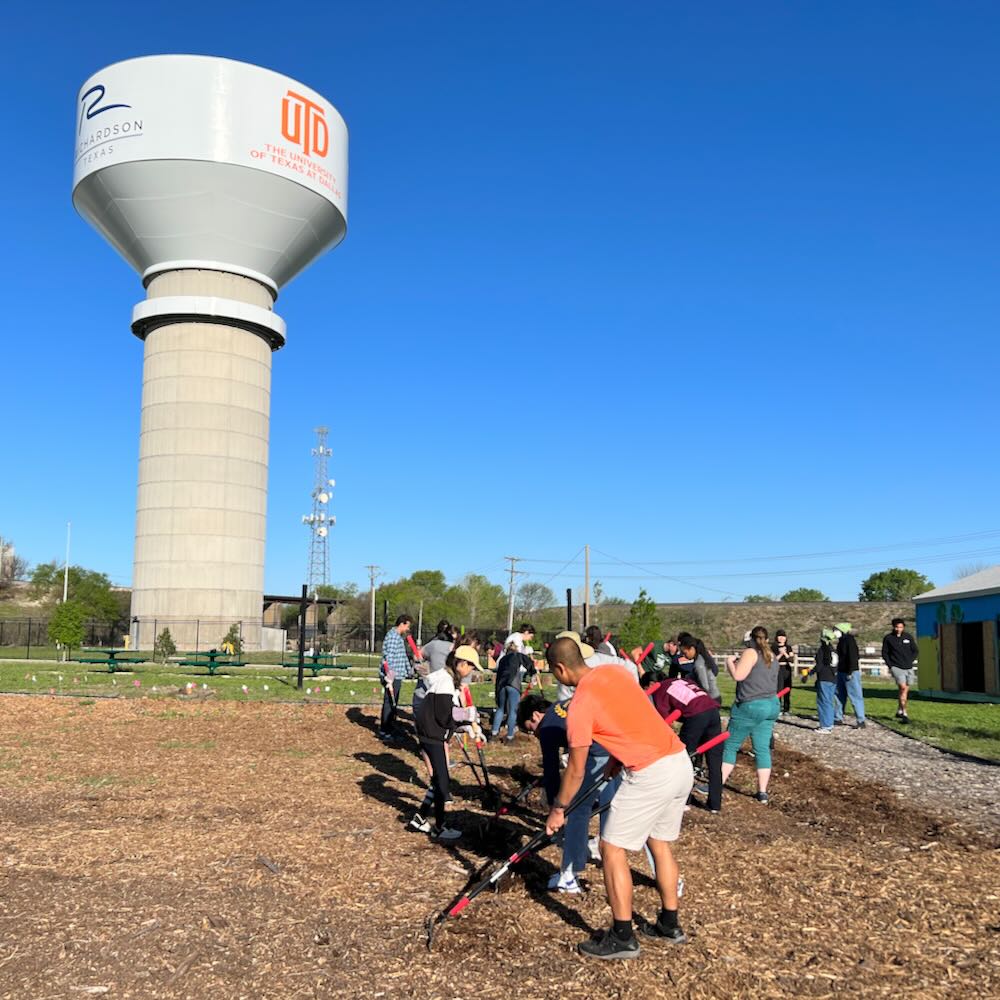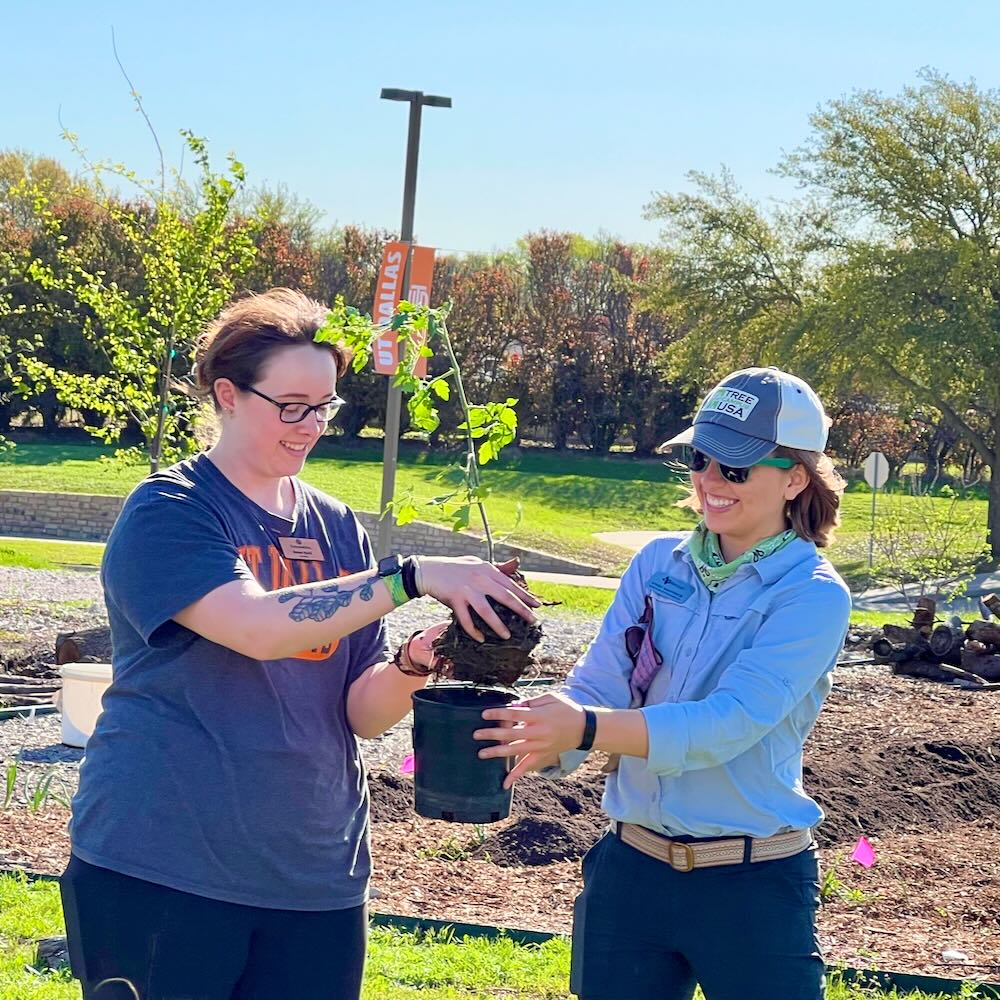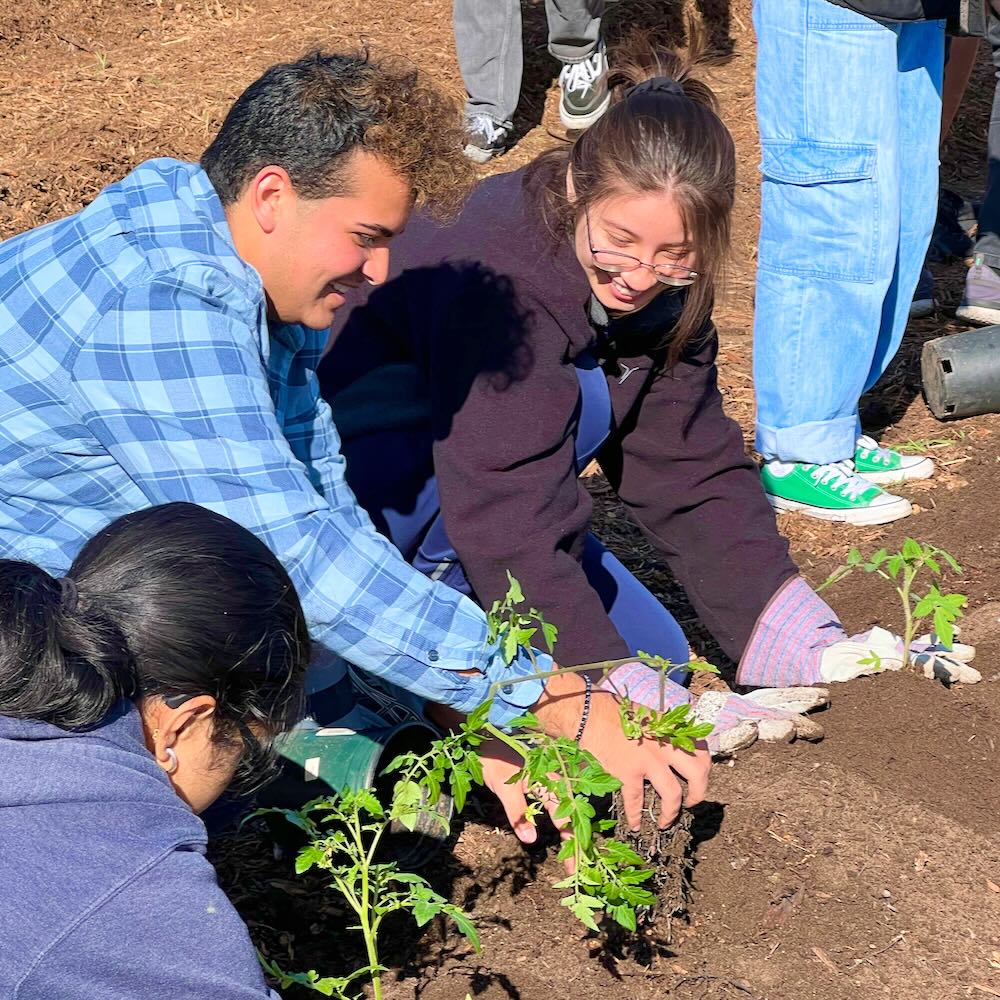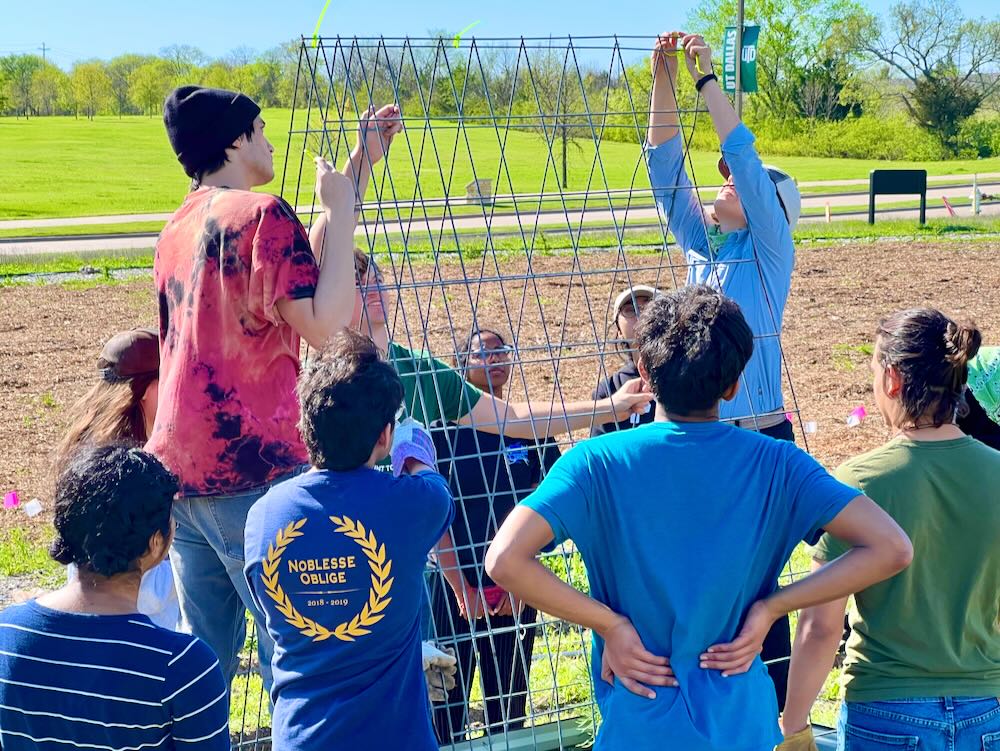The Office of Sustainability’s mission is to engage the UT Dallas community as a catalyst and champion for environmental stewardship and social responsibility while fostering a culture of sustainability evident in all aspects of the campus experience.
Eco Hub Workdays Offer Hands-On Learning
April 12, 2023
If you’ve traveled past the UT Dallas Eco Hub this semester, you’ve probably noticed quite a few changes. If you happened to pass by on a Saturday, you’ve witnessed all the Comet enthusiasm that’s been bringing those changes to life. For weeks, the Office of Sustainability has been organizing Eco Hub Workdays —opportunities for students from all majors and University organizations to collaborate and get a hands-on education in sustainability.

Spring Planting: Preparing the Field
Cover Crops
Earlier this year, instead of remaining a large patch of barren soil in the colder weather, our micro-farm was filled with cover crops for the first time. This agricultural practice is gaining traction as a way of improving the soil and ultimately increasing crop yields. At UTD, a combination of crops — Austrian Winter Peas (Pisum sativum), Hairy Vetch (Vicia villosa), Daikon Radishes (Raphanus sativus) and Winter Rye (Secale cereale) — contributed to soil quality in different ways. While the peas and vetch helped fix nitrogen in the ground, the radishes and rye helped break up the hardpan. Working together these plants reduced erosion, retained water, kept weeds from having a place to grow, added to the overall biomass of the farm and served as a way to attract a wider range of beneficial insects and pollinators. Using cover crops has made the farm more resilient to adverse conditions.

Spring Planting: Eco Rep Anna Reid (left) and Sustainability Coordinator Avery McKitrick demonstrate proper transplanting technique.
Spring Planting
March 25 was a busy day at the Eco Hub, as dozens of students came together to plant Cherry variety tomatoes (Solanum lycopersicum) in the main field. At raised beds nearby, cucumbers (Cucumis sativus), an heirloom Cherokee Purple tomato variety and an heirloom Pineapple Beefsteak tomato variety were planted. Throughout the day, volunteers learned the reasons behind the planting techniques being used, best practices and the benefits of sustainable agriculture.

Spring Planting: Cherry Tomatoes
Broccoli (Brassica oleracea) which had been allowed to “go to seed” in another raised bed was pulled up before the increasingly warmer days could affect it. This was an opportunity to harvest seeds from a plant that survived in local conditions and could produce future broccoli plants that were better adapted to this area. It was also a chance for students to taste genuinely “farm fresh” produce.

Spring Planting: Building a Trellis for Cucumbers
Collaborations
This farm in The University of Texas at Dallas has become a center for collaboration. Several groups helped with the Spring Planting, including ECO [Environmental Conservation Organization] , Tau Sigma, University Recreation and UTD Wind. Earlier this year, Master Gardner Jeff Raska gave a lesson on fruit tree pruning using the Eco Hub peach (Prunus persica) trees. A laboratory team under Dr. Shalini Prasad from the Department of Bioengineering & Biomedical Engineering is testing a set of sensors in one corner of the main field, collecting a variety of soil quality metrics in the hope of generating real-time data on the health of the field.
More to Come
Many more workdays and Eco Hub events are scheduled for this school year. New hives will soon be added to the apiary, a greenhouse will be erected through a generous donation from the McDermott Scholars and this coming Earth Day promises to be a great time for both volunteering and celebration. Check the University Calendar for opportunities to join in.
